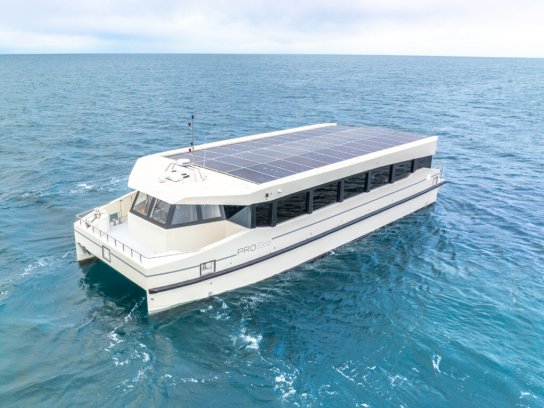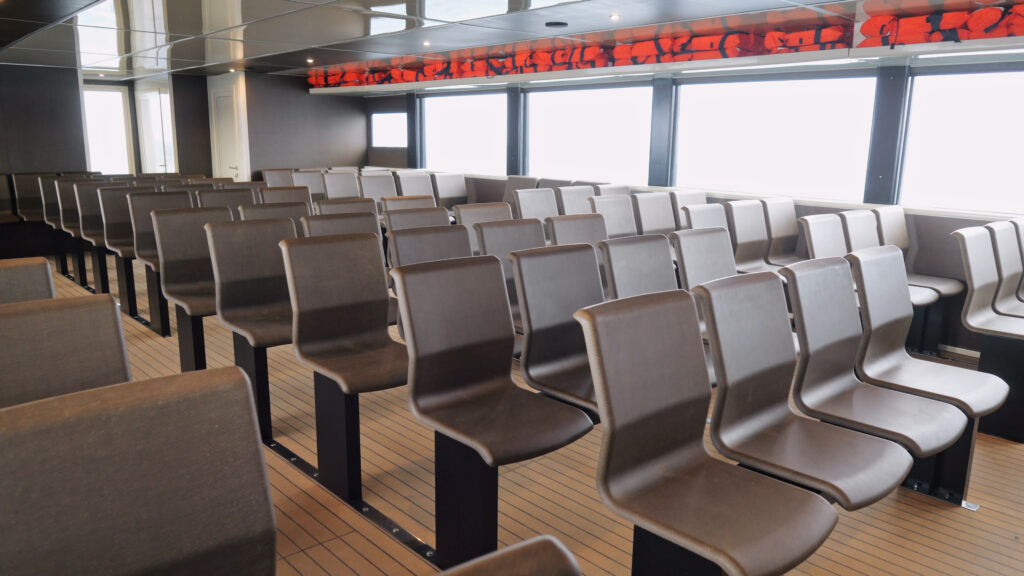
New Agena Taxi Catamaran employs Airex T92
High-performance bio-composite material used in the construction of almost all non-structural and semi-structural components of the vessel.

21st October 2024
Innovation in Textiles
|
Rovinj, Croatia
An eco-catamaran partially built with Bcomp’s ampliTex flax fibre composites has this summer started ferrying passengers around the Port of Rovinj in the Adriatic Sea.
The first of its kind, the solar-powered PROeco vessel is the result of a two-and-a-half-year collaboration between Bcomp and Croatia-based marine manufacturer Marservis.
Bcomp’s high-performance bio-composite material was used in the construction of almost all non-structural and semi-structural components of the vessel, including the bulkheads, seats, ceiling and side linings, as well as some parts of the floor. These parts were manufactured by combining ampliTex laminate with infusion bio-based epoxy resin through vacuum infusion and a resin transfer moulding process.
“By combining renewable energy with natural fibre composites, this vessel represents the advent of a completely new stage in eco-friendly mass mobility on waterways,” saysPaolo Dassi, Bcomp manager for marine and industry. “Not only does it reduce energy demands and emissions related to manufacturing, but it also allows for a substantial reduction in impacts throughout the vessel’s operational life.”

With capacity for 100 passengers and two crew, the PROeco is being used on short, defined routes for more than ten hours daily. The use of electric motors has resulted in a savings of 770 kg of harmful diesel emissions each day. The bio-based material used in place of standard glass, polyester and vinylester has also reduced emissions related to the manufacture of those fossil fuel-derived materials and offers enhanced end-of-life options.
Test panels of the bio-composite material were subjected to mechanical property tests in cooperation with the University of Zagreb’s Faculty of Mechanical Engineering and Ship Building. The ampliTex material is also being used by Marservis for the Aquapod, an autonomous device used to collect floating waste from ports, and the ECOcube, an autonomous floating reception station for solid and liquid wastes from vessels.
“The cooperation with Bcomp was excellent and the new owners are very satisfied with the PROeco’s performance,” says Marservis CEO Luciano Beg. “We are already fielding enquiries from other companies in the EU about these PROeco catamarans.”

Business intelligence for the fibre, textiles and apparel industries: technologies, innovations, markets, investments, trade policy, sourcing, strategy...
Find out more